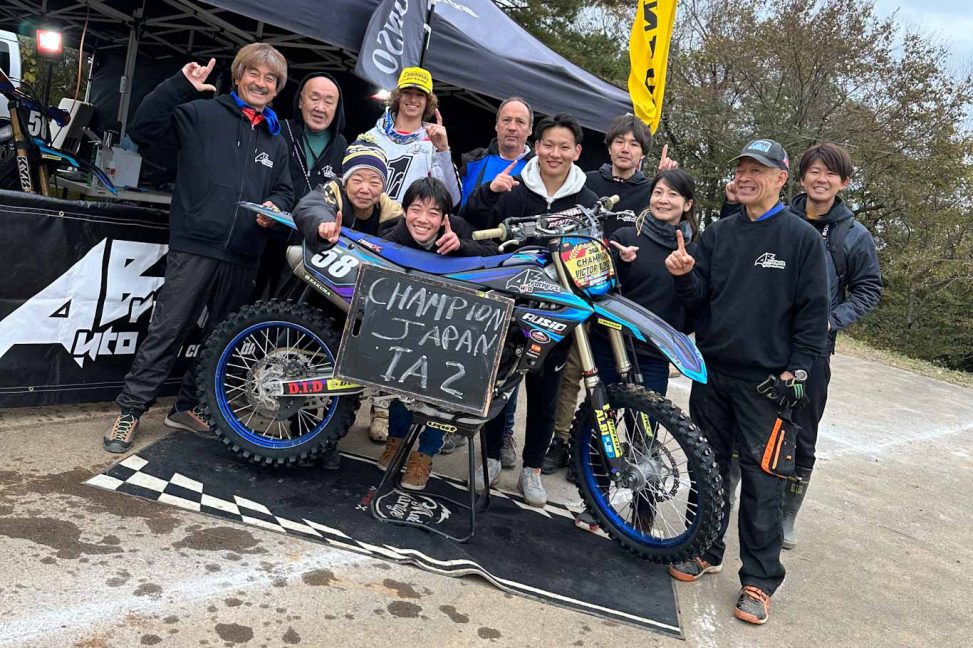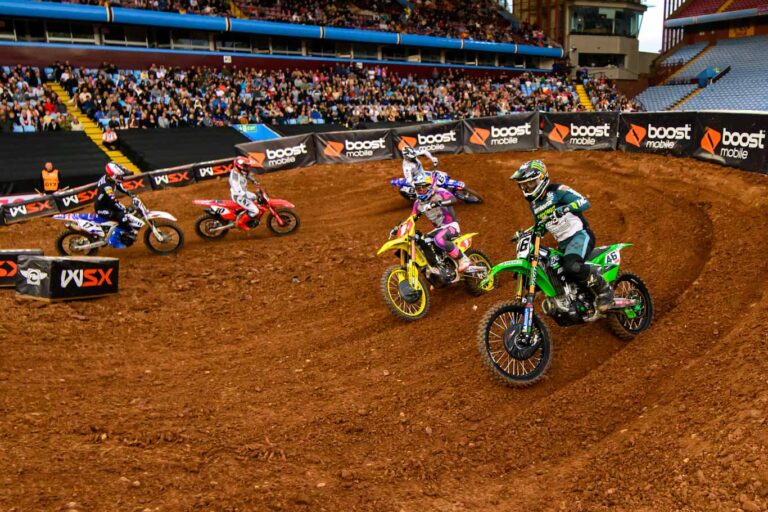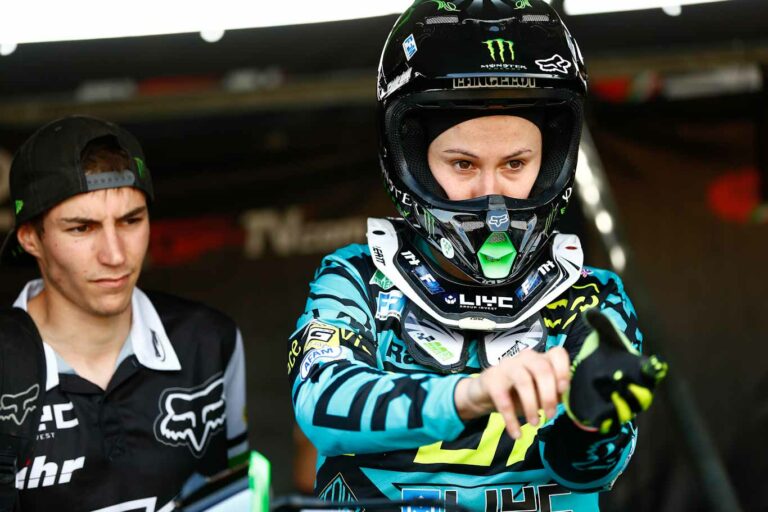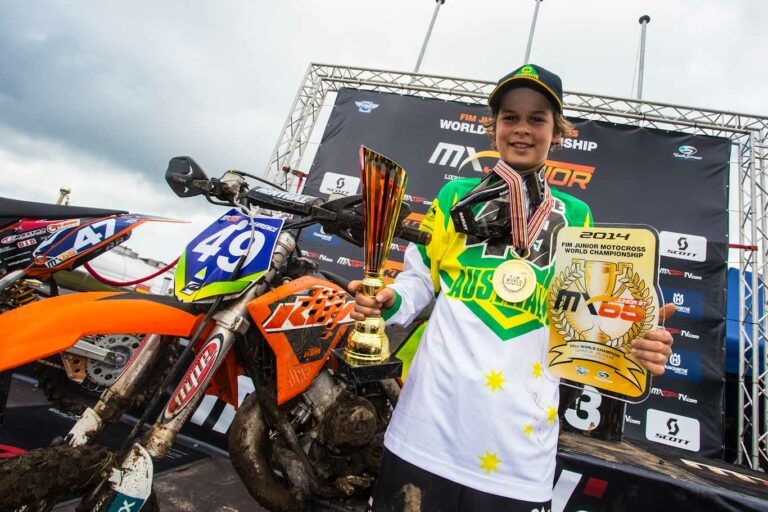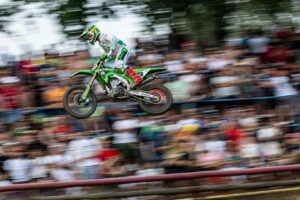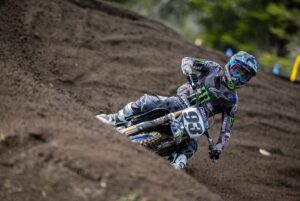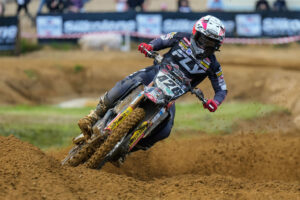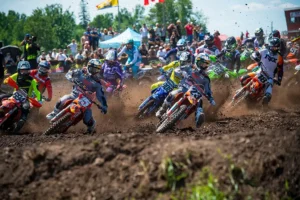This weekend, March 30 & 31, a new All-Star Japan Motocross season will kick off at the Off-road Village of Saitama. Last year, we saw Spaniard rider Victor Alonso claiming the IA2 title (250) which was a historic moment for Spain and also allowed us to know more about motocross culture in Japan. Alonso is now a step forward to the IA1 class (450) with the same team as last year -AutoBrothers-but this year he added some “Spanish sauce” as he will ride for GasGas.
The following interview was made last year (6/12) few days after Alonso was proclaimed IA2 champion. He talked about the cultural differences, the brand approaches, and more.
Victor Alonso: A samurai with Spanish accent
Víctor Alonso Rodilla has written a new page in the history of Spanish motocross. Never before had a Spanish rider been proclaimed IA2 (MX2) Champion in Japan, a Championship we know little about, but which enjoys enormous prestige due to the great importance attributed to it by national manufacturers such as Yamaha, Honda or Kawasaki. Radically different cultures, different race formats, new competitors and circuits, everything represented a new challenge in itself for Victor, who was finally able to achieve the goal with which he took the plane and crossed half the world, that of winning the title after completing a very creditable season in which he has ended up accumulating 10 moto victories and 4 in the overall.
Victor, congratulations! IA2 (MX2) Champion of Japan, how does that feel?
It feels very good to be honest, especially after a rough start to the season in the Spanish Championship, with a lot of mistakes, now I have felt that precisely those mistakes have helped me to manage this Championship much better and to finally get a title that means a lot to me, because it is the first one, and because it was the main goal when we made the decision to go to Japan.
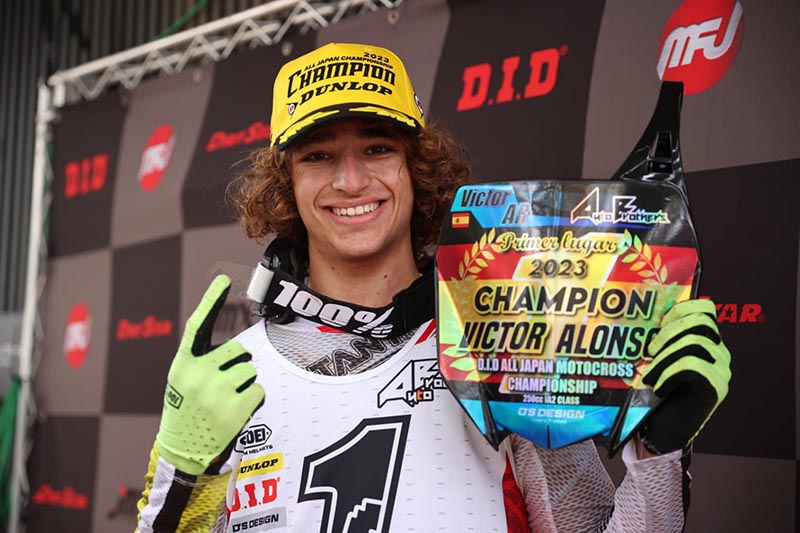
You had 28 points of advantage before the final round. Pressure? Nervous? How did you manage the weekend?
That’s right. The thing is that in this last round there was a different scoring system, as they gave 3 extra points to the standard scores, so the first place won 28 points. On Saturday I didn’t really feel anything different, like any other weekend, but at night, when it was calm, some more nerves started to appear and Sunday morning too, but they didn’t affect me negatively, I tried to use them as a source of energy to go out and give the maximum and it worked because I rode comfortably and I could manage well in the heats. I think I managed it very well, I was not obsessed with overtaking fast at the beginning of both heats, step by step I progressed, and when I had it clear I pushed to take the lead. To finish the Championship with a 1-1 was very nice.
A very solid start to the season, then a couple of races where it was a bit more difficult, and then you finish it again at a great level. Tell us a little bit about the different stages throughout the season.
Yes, we started well, although, in the opening moto of the season I had a small crash that left me with a 0 for the second moto. After the first races I went back home and had another crash while training in France, which left me 3 weeks without being able to ride my bike. It was here that my bad streak started a little bit. I was not yet at 100%, and I also had some bad luck. Fortunately, we had a good income and we started working hard again to get back to our best. We trained a lot with my father, who has always been with me in Japan, and we were able to ride again at a high level in these last two races that concluded the Championship.
This has been a completely different experience from what you have lived so far. Now that you have completed the season, what has surprised you the most and what would you highlight from the D.I.D. All Japan Championship?
It’s not that much different. Maybe it makes a difference being a country so far away with customs and culture different from Europe, but in the end, it’s a motocross championship like the one you can find in any other country and the organization is more or less the same.
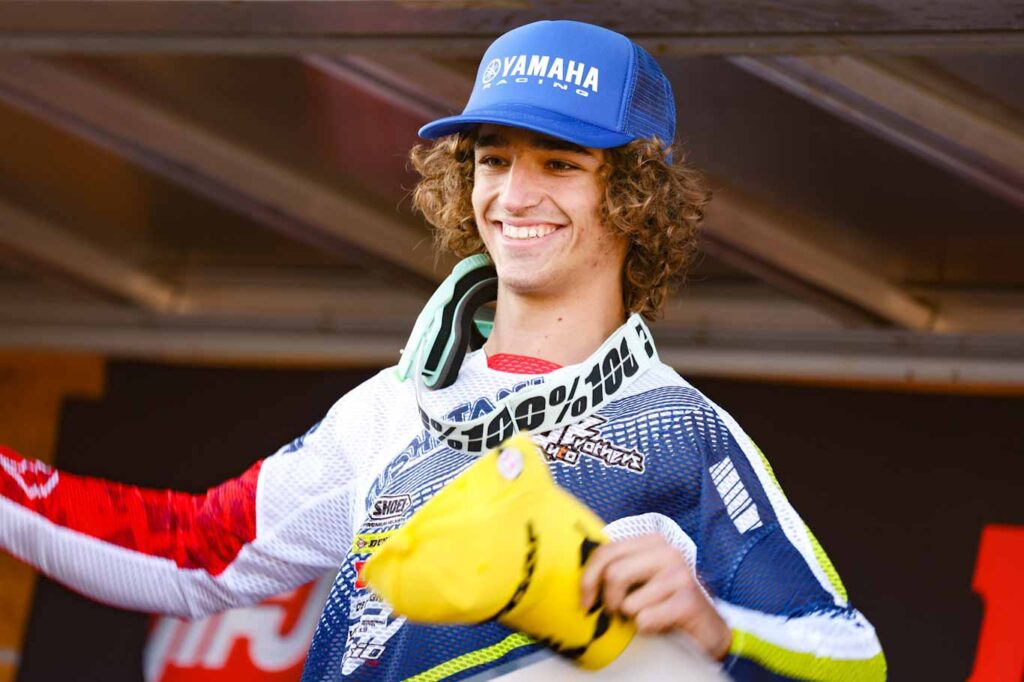
Do you really see a direct involvement of brands such as Yamaha, Kawasaki or Honda to develop their models in the Championship?
I think so, and quite a lot, actually. For example, Yamaha has a team focused exclusively on the evolution of the bike, which is where Jay Wilson and his partner in MX1 are. Then before each race, during the week, the four major brands go with their riders and do two days of testing before the event where they work on suspension and, most importantly, engine mapping and electronics for the races. The Factory bikes also carry parts that have not yet arrived in Europe and are used for future model updates.
Are the bikes technically prepared as well as in Europe? How well equipped is the YZ250F of the Auto Brothers team, for example?
Yes, in the Factory teams they have very well set-ups, sometimes even better than in Europe, but for example, in MX2, I raced with the stock bike, the only thing we mounted were the KYB Kashima suspensions, but the rest we didn’t change anything because my Team Manager said that winning with the stock engine had more merit, so he decided not to touch anything on the engine.
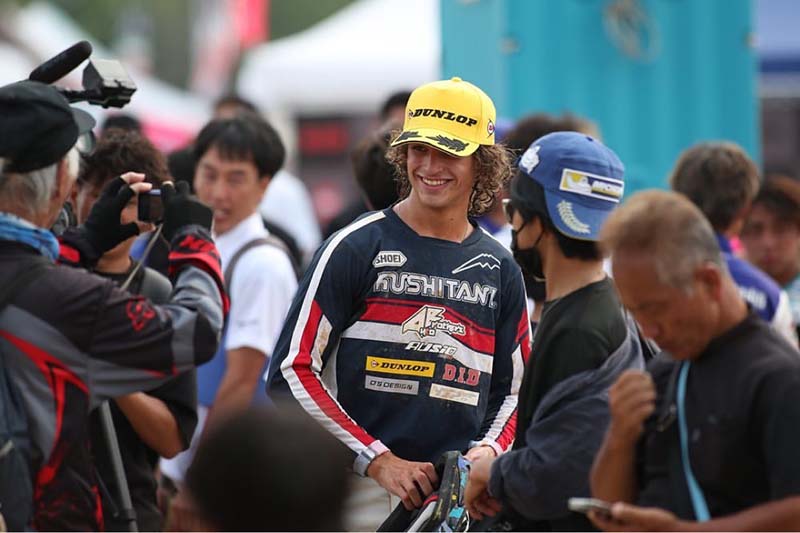
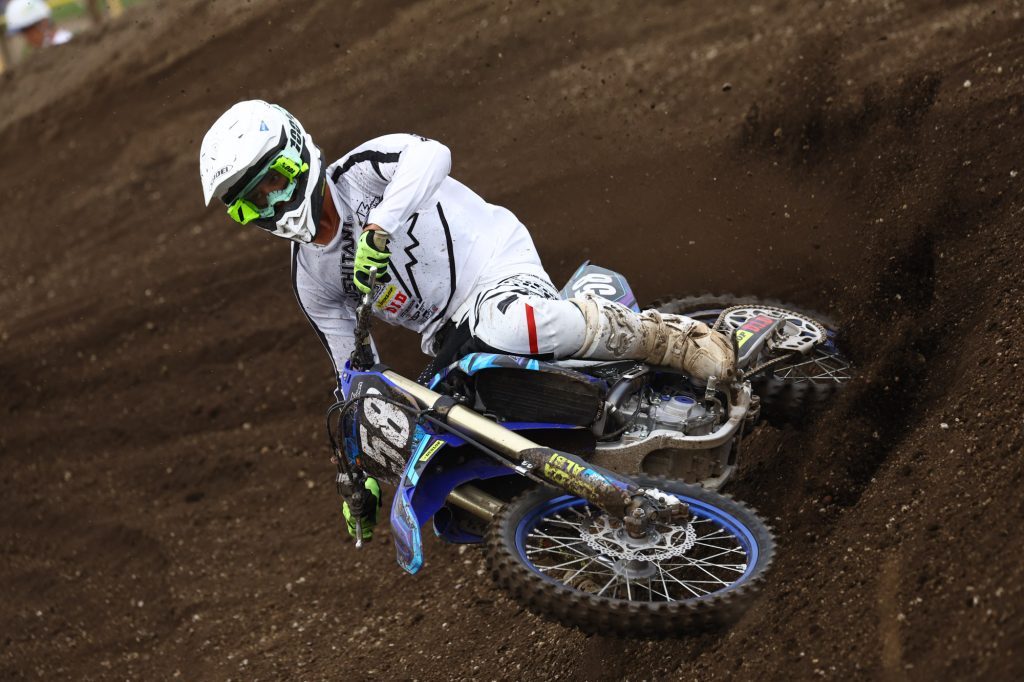
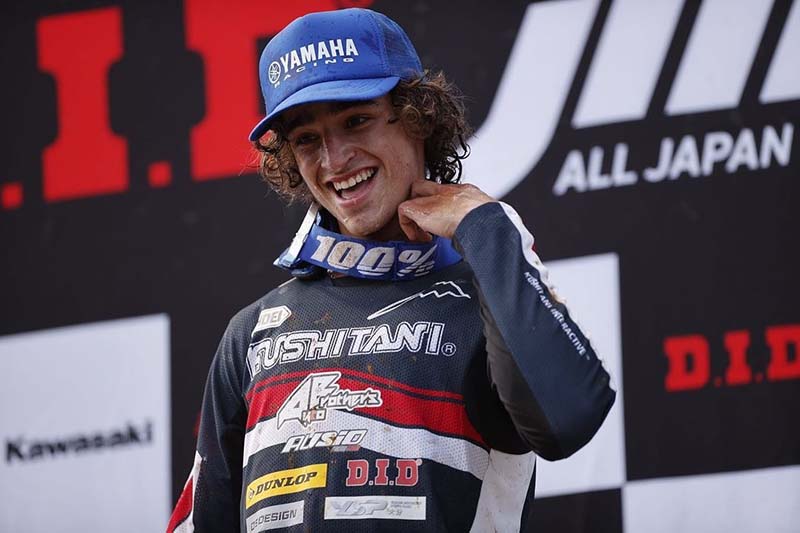
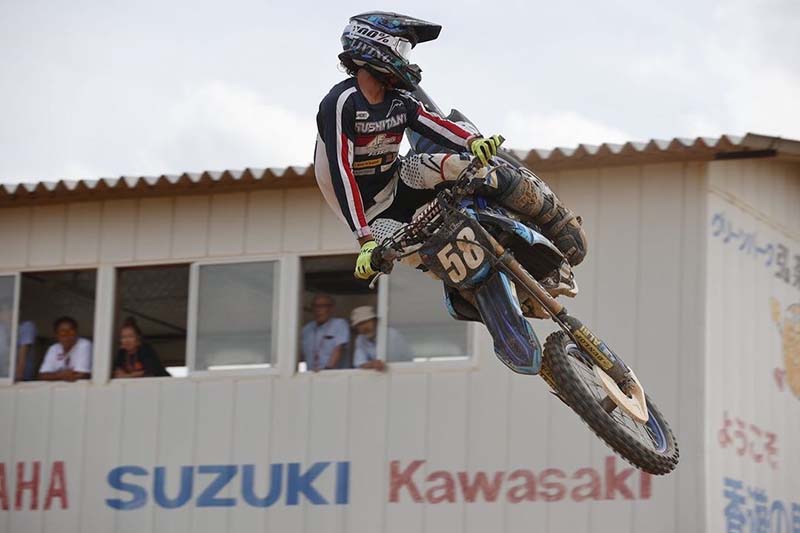
What about the tracks? Some of them showed ruts worthy of the MXGP World Championship, while others were rather flat and not very technical…
There are very cool tracks, Sugo, for example. I had raced in the World Championship, and most of them were very well maintained, there were a lot of ruts. Yes, some of them were a bit flat but most of them ended up very rough and super fun to ride, so in general it was very good to compete on tracks I had never been on before and to have to adapt to different conditions and terrains.
Do you think that your time in the Japanese Championship has helped you to continue progressing as a rider?
I think it has. I have been able to race with riders I didn’t know, I have made new friends on the other side of the world, new contacts, and also discovered a new culture with which to grow on a personal level and obviously also as a rider. So the mix I think is very positive and I am very grateful to all the people who have made it possible.
And on a personal level? You have also lived in a country with very different customs and culture
There is a change here (laughs). Here in Japan people get up very early, but the truth is that it’s early in the morning. My team leader, for example, gets up at 5 in the morning and goes to bed at 7 in the evening. We try to keep our Spanish schedule, but it’s a bit complicated. People are also super respectful, too much I would say (laughs). For example, when I won the Championship this past weekend, the boss’s son came and asked me if it was okay to throw champagne all over me, and my father and I were just…. no questions asked! There’s a lot of respect, and there’s another funny story about a day when all the brands were testing. My father wanted to move around the circuit on a bicycle because the distances were long, but it is something that is forbidden, so you can see me sitting in a meeting with the chiefs of each brand to ask permission to do so without anyone feeling offended. As I say, a lot of respect.

